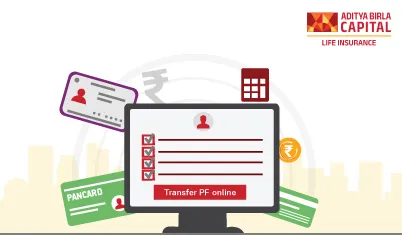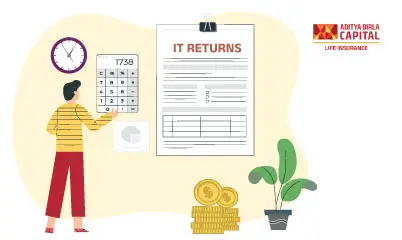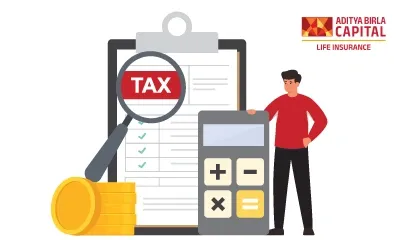What is last date for filing ITR

Plan Smarter, Live Better!


- Table of Contents
FAQs What is the Last Date of ITR Filing
To claim an income tax refund after the due date, you should still file your Income Tax Return (ITR) at the earliest, despite being late. The process remains the same as filing on time:
a. Login to the Income Tax e-Filing portal.
b. Select the appropriate ITR form based on your income and sources of income.
c. Fill in the necessary details, ensuring to report all sources of income accurately.
d. Declare the taxes already paid, including TDS and advance tax, to claim a refund.
e. Verify and submit your ITR.
The Income Tax Department processes refunds after assessing your return, even if filed late, provided you are eligible for a refund.
If you've missed paying your income tax by the due date, you can still make the payment through the following steps:
a. Visit the official Income Tax e-Payment portal.
b. Select the appropriate challan (ITNS 280) for paying income tax.
c. Fill in the requisite details, including PAN, assessment year, and address.
d. Choose the type of payment (Self-Assessment Tax if paying after the due date).
e. Make the payment using net banking or debit card options.
f. Save the receipt of payment for record-keeping and mention this payment while filing your ITR.
g. It's important to include interest for late payment as applicable under Sections 234A, 234B, and 234C.
Section 139(4) of the Income Tax Act allows individuals to file a belated ITR after the due date. However, it must be filed before the end of the relevant assessment year or before the completion of the assessment, whichever is earlier. Filing under this section may attract a late filing fee under Section 234F and interest under Section 234A.
To revise your income tax return before the due date:
a. Log in to the Income Tax e-Filing portal.
b. Choose the 'Revised Return under section 139(5)' option.
c. Enter the acknowledgement number and date of the original return filed.
d. Make the necessary corrections in the relevant fields of your ITR form.
e. Submit the revised return and keep a record of the acknowledgement.
The process to revise an ITR after the due date is the same as revising it before the due date, under Section 139(5) of the Income Tax Act. You can file a revised return anytime before the end of the relevant assessment year or before the completion of the assessment, whichever is earlier.
An income tax audit is an examination/review of an individual's or organisation's financial accounts and tax returns by a chartered accountant to ensure compliance with the Income Tax Act. It involves verifying the accuracy of the income declared, expenses deducted, and taxes paid.
Under Section 44AB of the Income Tax Act, the following entities are required to get their accounts audited:
a. Businesses: If their total sales, turnover, or gross receipts exceed ₹1 crore in the FY.
b. Professionals: If their gross receipts exceed ₹50 lakhs in the FY.
c. Presumptive Taxation Scheme: Individuals opting for this scheme but claim profits lower than the prescribed rate and have income above the basic exemption limit.
Additionally, specific other entities and individuals under certain conditions may also need to undergo an income tax audit.
Buy ₹1 Crore Term Insurance at Just ₹575/month1
ABSLI DigiShield Plan
Life cover up to 100 years of age.
Joint Cover Option
Inbuilt Terminal Illness Benefit
Tax Benefit^
Return of Premium Option~
Life Cover
₹1 crore
Premium:
₹575/month1
Most Popular Calculator
ADV/5/24-25/404







